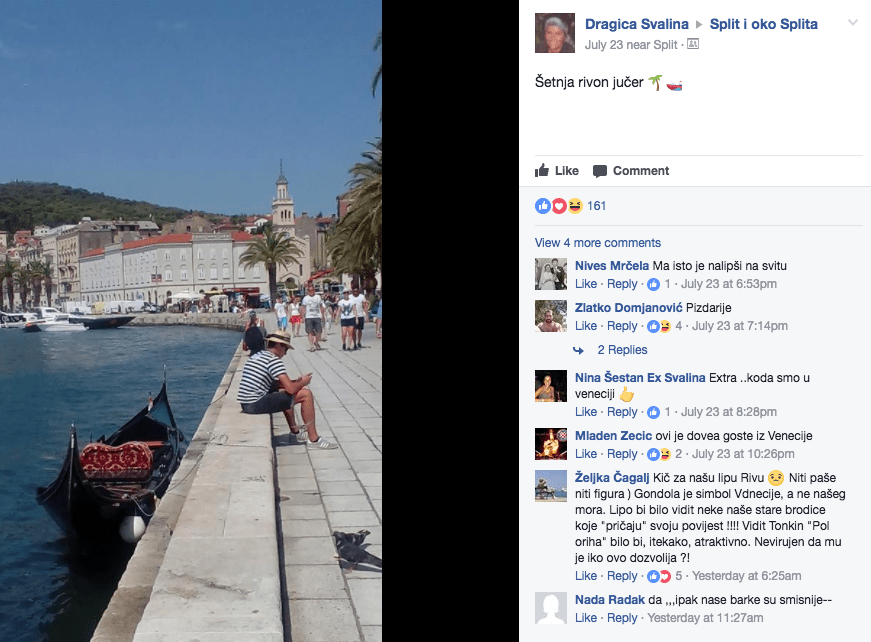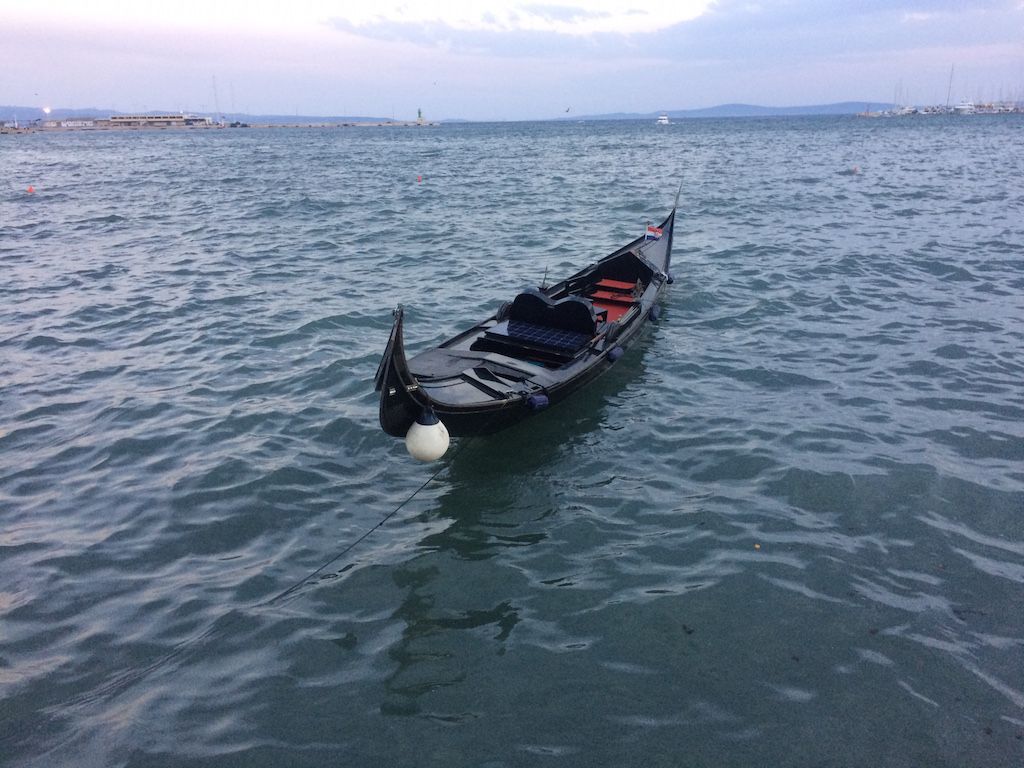Has Split become the new Venice?
We are all aware by now that Split is a hit. Hell, we’ve known that for the last few years. With 110,000 visitors to the city last weekend alone, tourism to the Dalmatian capital is booming.
While this might seem like a cause for applause, many are left wondering whether Split can accommodate such a tourism boom. Don’t we all feel like we’re suffocating a bit?
With Split becoming increasingly popular, it comes as no surprise then that the tourism boom has birthed new ideas for tourists. Because many have exhausted ways of making walking tours more unique and Game of Thrones references in the city have worn us all out, how do we make tourism attractive in Split next?
The Riva, our water-front runway, is one of the main tourist attractions that defines Split as a city. No stranger to locals looking for an extra buck with their street performances, popcorn, or balloon sales, tourists have undoubtedly also figured out Split - and in the last few weeks, I have witnessed new Riva attractions that have stopped me in my tracks more than a few times.
The Riva has become more of a spectacle than ever. It is the place where you can now find Middle Eastern dancers and men selling counterfeit purses like I used to see in Rome. Tourists can now get their hair African braided next to the woman giving henna tattoos, and the klapa - one of the last remaining reminders of Split culture - sings on the Summer Colors stage in the midst of it all. While one might argue this is all evidence of Split becoming more of an international destination, others might wonder where the culture of Split has disappeared to.
But one sight, in particular, really caught my eye the other day: The Split Riva now offers gondola rides. Yes, gondola rides.
One of the defining aspects of Venice as a tourist destination, gondolas are a traditional Venetian rowing boat that has been used for centuries to navigate through the Venice canals. Today, gondolas are primarily used for tourists to the city, with around 400 licensed gondoliers and boats in Venice today.
Why someone would think of bringing a product of Venetian tourism to Split is something that has many of us scratching our heads. Sure, Split was under Venetian rule during part of its turbulent history, but does that mean we should use their leading symbol of tourism to define ours?
I was eager to find out more.
Popular Split Facebook group Split i oko Splita (Split and around Split) has become one of my favorite sources of local information lately. And sure enough, a member of the group posted a photo of the famous gondolier having a break on the Riva just a few days back. "A walk on the Riva yesterday" the group member posted. I quickly looked at the comments to read more.

"A gondola and a gondolier, and that, on our Split Riva," read one of them. "Bollocks" read another. And my favorite? "The gondola is a symbol of Venice, not of our sea. It'd be good to see some of our old boats and the stories of their history instead."
I turned to the trusted internet next to see what more I could find. To my surprise, I found an interview with a gondola man conducted by 24 Sata from May 2017. The headline read: "No, this is not Venice: A gondola is now driving through the Trogir Channel." While this article had no mention of Split, I was sure I'd find a correlation in this somehow. How many people in Dalmatia own gondolas, anyway?
And so the story goes.
Damir Mišetić from Čiovo had the idea of bringing a gondola to Dalmatia after visiting his family in Venice some five years ago. After being shown a very old, wooden gondola that needed a world of repairs, the 27-year-old knew that it would be too expensive to take care of in Italy. After some thought, Mišetić ultimately decided to bring the boat to Dalmatia.
"None of this would have been possible without my friends. They helped me with the transportation, and later on with the repairs and decoration. Randomly, we learned through a friend that there would be a tow truck returning from Italy empty. He had to come to Venice exactly at that minute because of problems with parking and crowds. As he arrived, the gondola came from a small island with a special crane boat. As soon as the boat had reached the port, the tow truck appeared. If he came five minutes earlier or later, there would be nothing to transport. When we left, we decided to meet at the rest area in Janjče. The truck driver then took off the tarp, and at least 50 people were looking at this gondola. The truck driver said, 'Here you are, cousin!'" and that is how the gondola arrived in Little Venice, Trogir, according to Mišetić.
Of course, Damir’s plans were to drive tourists around during the summer, and he even planned to sing to them.
“I plan to drive tourists this summer, and as soon as it begins, there will be interest. I have two more rowers still training - and rowing a gondola is not easy,” Mišetić concluded.
Fast forward to the end of July, could it be that the gondola business in Trogir, our Little Venice, saw no such luck? How else would a gondola possibly appear in Split?
I set out to find the so-called gondola man on the Riva myself yesterday afternoon, only to find his gondola swaying aggressively in the bura wind, with no gondolier in sight. "Fine, I'll try tomorrow," I said.
This time there was no boat in sight, leaving me to think that some curious tourists were tempted to take it for a ride.
Where does the gondola go? What does the gondolier sing? Does the gondolier make the couple kiss as you're supposed to on gondola rides in Venice?
With so many questions still left unanswered, I'll cross paths with the gondolier soon, I am sure. Until then, one question really continues to burn: Why Split?
Maybe I'll have to take one for a ride.
Stay tuned.


